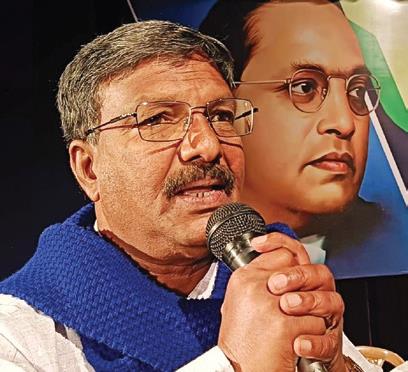
Change in mindset of people the only way for us to progress, say Dalit leaders
Bengaluru, NT Bureau: How do they feel about Independence, seven decades after that fateful day in 1947? Leaders of the Dalit, Scheduled Caste and Scheduled Tribe communities shared their thoughts on independence, and the future prospects of living in this country.
R Mohan Raj, State Convenor of the Dalit Sangharsha Samithi (DSS), touched on how the laws prescribed in the Indian Constitution have helped Dalits but just not enough to ensure their progress.
“Legislating new laws has so far not brought much impact at the ground level. It is the mindset that needs to change amongst people if they are to consider us as their equals,” he said, adding that the all-pervading caste system has not helped their cause.
Raj also emphasised on the shrinking employment opportunities across the country.
“Reservation in public sector undertakings have shrunk through the years due to privatisation. Dalits in rural areas don’t have access to basic education, prompting them to migrate. However, they face financial difficulties, too,” he said. Dwelling on the future, Raj feels it may take more time for Dalits to progress.
“We’ve faced difficulties with reservations and joining the mainstream, but I feel we’re halfway there. We have a Dalit President, and the state’s Chief Minister hails from a backward caste. If mindset changes, progress will ensue,” he concluded.
Mavalli Shankar, Chief Convenor of the DSS, explained the idea of Independence for a Dalit. “It’s about being free from the vortex of discrimination, in this case, the present brahministic system. Ambedkar’s vision laid down in the preamble is our guiding force. He envisioned an India where Dalits are put in the same place as other people. However, despite laws being enacted, atrocities against dalits still continue,” he rued.
Shankar also echoed similar concerns when it came to employment and education. “The liberalisation policies sounded the death knell for Dalits in workplaces. Work in the present day is outsourced and contracted landing many in very poor conditions. Not even one per cent Dalits work in the organised sector and less than 35 per cent Dalit students find good education,'' he explained.
Dalits who openly express themselves have also landed in trouble, Shankar noted. “If if we wear a good looking dress we are being ridiculed. We don’t have land assets to make progress.''
 English daily published in Bengaluru & Doha
English daily published in Bengaluru & Doha






